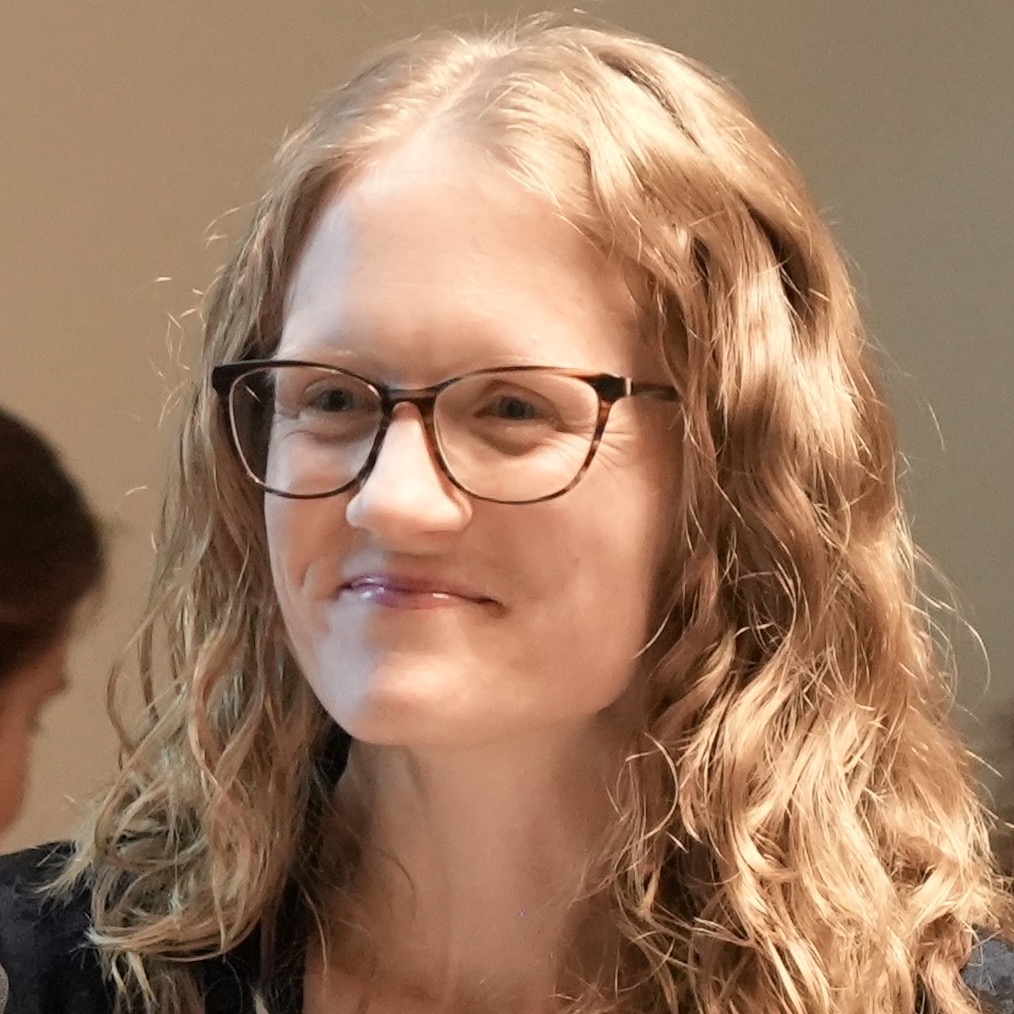-
Haar weg naar het Torentje. Waarom Nederland nog nooit een vrouw als premier had
van der Zwet, M., and Mügge, L. (2025). “Haar weg naar het Torentje. Waarom Nederland nog nooit een vrouw als premier had". in: De minister-president, eds. Dekker, Groen, Van...
-
Representing the Unrepresented? Examining Disability Representation in the German Parliament
Fabry, V., Hunklinger, M., & Mügge, L. (2025). Representing the Unrepresented? Examining Disability Representation in the German Parliament. German Politics, 1–24....
-
Super Politicians? Perspectives of Minoritized Citizens on Representation
de Jong, J. C., & Mügge, L. (2023). Super Politicians? Perspectives of Minoritized Citizens on Representation. Political Studies Review, 21(3), 506-514....
-
Intersectional Repertoires of Coping with Political Violence
Mügge, L., Özvatan, Ö. (2025). Intersectional Repertoires of Coping with Political Violence, Social Politics: International Studies in Gender, State & Society....
-
Descriptive Representation
Mügge, Liza M., Zahra Runderkamp & Niels Spierings. 2024. "Gender and Right-Wing Populism in the Low Countries: Ideological Variations Across Parties and Time", in Oxford Handbook of Dutch Politics, edited by Sarah de Lange, Tom Louwerse, Paul ‘t Hart...
-
What Explains Voting for DENK: Issues, Discrimination or In-group Favouritism?
Van Oosten, S., Liza Mügge, Armen Hakhverdian & Daphne van der Pas. 2024. "What Explains Voting for DENK: Issues, Discrimination or In-group Favouritism?" Journal of Representative Democracy....
-
Bent ú de volgende burgemeester?
Mügge, L., & Runderkamp, Z. (2024). "Bent ú de volgende burgemeester?", in Ministerie van Binnenlandse Zaken , Den Haag. Lees hier het volledige artikel.
-
Political Participation and Representation of Dutch Citizens with Roots in Turkey
Aydemir, Nermin & Liza Mügge. 2024. "Political Participation and Representation of Dutch Citizens with Roots in Turkey", in Routledge Handbook of Turkey's Diasporas, edited by Ayca Arkilic & Banu Senay....
-
Politics without Presence? The Symbolic Representation of Trans People in Germany and the Netherlands
Schotel, A. L. & Mügge, L. (2024). "Politics without Presence? The Symbolic Representation of Trans People in Germany and the Netherlands" Politics &...
-
German Ethnic Minority and Muslim Attitudes, Voting, Identity and Discrimination (EMMAVID)
van Oosten, Sanne, Liza Mügge, Armen Hakhverdian, Daphne van der Pas, Floris Vermeulen. 2024. German Ethnic Minority and Muslim Attitudes, Voting, Identity and Discrimination (EMMAVID). Harvard...
-
French Ethnic Minority and Muslim Attitudes, Voting, Identity and Discrimination (EMMAVID)
van Oosten, Sanne, Liza Mügge, Armen Hakhverdian, Daphne van der Pas, Floris Vermeulen. 2024. French Ethnic Minority and Muslim Attitudes, Voting, Identity and Discrimination (EMMAVID). Harvard...
-
Dutch Ethnic Minority and Muslim Attitudes, Voting, Identity and Discrimination (EMMAVID)
van Oosten, Sanne, Liza Mügge, Armen Hakhverdian, Daphne van der Pas, Floris Vermeulen. 2024. Dutch Ethnic Minority and Muslim Attitudes, Voting, Identity and Discrimination (EMMAVID). Harvard Dataverse.
-
Political Representation and Intersectionality: Perspectives of Ethnically/Racially Minoritized Citizens
De Jong, Judith C. & Liza M. Mügge. 2024. "Political Representation and Intersectionality: Perspectives of Ethnically/Racially Minoritized Citizens". Social Politics: International Studies in Gender, State &...
-
Agressie en geweld bedreigen de diversiteit van het burgemeesterkorps
Runderkamp, Zahra & Liza Mügge. 2023. "Agressie en geweld bedreigen de diversiteit van het burgemeesterkorps"....
-
De politieke genderkloof: opkomst van vrouwen bij de gemeenteraadsverkiezingen
Runderkamp, Zahra & Liza Mügge. 2022. "De politieke genderkloof: opkomst van vrouwen bij de gemeenteraadsverkiezingen", in De lokale niet-stemmer: Een analyse van de lage opkomst bij de gemeenteraadsverkiezingen van 2022,edited byHans Vollaard, Lisanne...
-
Political narratives in representation: Maiden speeches of ethnic minority members of parliament
Mügge, L. & Zahra Runderkamp. 2024. "Political narratives in representation: Maiden speeches of ethnic minority members of parliament" European Journal of Political Research. 63(2): 579–598.
-
Heksen, fakkels en #MeToo: gendergerelateerd geweld in de politiek
Mügge, Liza, & Zahra Runderkamp. 2023. "Heksen, fakkels en #MeToo: gendergerelateerd geweld in de politiek", in Voorbij de verbijstering: Over gender en geweld, edited by Renée Römkens, Anja Meulenbelt & Tessel ten Zweege. Walburg Pers....
-
Imagined constituents: Minoritized citizens’ evaluations of political representatives in Germany and the Netherlands
De Jong, Judith C. 2024. "Imagined constituents: Minoritized citizens’ evaluations of political representatives in Germany and the Netherlands". Ethnic and Racial Studies, 48(2), 270-294.
-
Race/Ethnicity in Candidate Experiments: a Meta-Analysis and the Case for Shared Identification
Van Oosten, S., Liza Mügge & Daphne van der Pas. 2023. "Race/Ethnicity in Candidate Experiments: a Meta-Analysis and the Case for Shared Identification" Acta Politica. 59(2024): 19–41.
-
Witte mannen zijn gewoon mannen, alle anderen zijn ‘anders’
Runderkamp, Zahra, Daphne van der Pas, Anne Louise Schotel & Liza Mügge. 2022. "Witte mannen zijn gewoon mannen, alle anderen zijn ‘anders’". Stuk Rood Vlees.
-
What shapes voter expectations of Muslim politicians’ views on homosexuality: stereotyping or projection?
Van Oosten, S. 2022. "What shapes voter expectations of Muslim politicians’ views on homosexuality: stereotyping or projection?"...
-
Space invaders and norm-politicians: how the media represent the intersectional identities of Members of Parliament
Runderkamp, Z., Daphne van der Pas, Anne Louise Schotel & Liza Mügge. 2022. "Space invaders and norm-politicians: how the media represent the intersectional identities of Members of Parliament". EuropeanPolitical Science Review....
-
What is Comparative Politics?
Erzeel, Silvia & Liza Mügge. 2021. "What is Comparative Politics?", in Political Science is for Everybody: An Introduction to Political Science, edited by Amy L. Atchison. University of Toronto Press.
-
A Bundestag of Color? An Intersectional Analysis of Diversity in the German Parliament
Mügge, Liza & Özgür Özvatan. 2021. "A Bundestag of Color? An Intersectional Analysis of Diversity in the German Parliament"....
-
Migrant votes ‘here’ and ‘there’: Transnational electoral behavior of Turks in the Netherlands
Mügge, L., Maria Kranendonk, Floris Vermeulen & Nermin Aydemir. 2021. "Migrant votes ‘here’ and ‘there’: Transnational electoral behavior of Turks in the Netherlands" Migration Studies. 9(3): 400–422.
-
Vielfalt und Repräsentation: Die Rolle der ethnischen Herkunft in der Politik
Mügge, Liza, Özgür Özvatan & Judith de Jong. 2021. "Vielfalt und Repräsentation: Die Rolle der ethnischen Herkunft in der Politik", in Herkunft und Lebenschancen: Die Macht des Ausgangspunktes, Wissenschaftszentrum Berlin für Sozialforschung. 173: 6–8.
-
Towards categorical visibility? The political making of a third sex in Germany and the Netherlands
Schotel, Anne Louise & Liza M. Mügge. 2021. "Towards Categorical Visibility? The Political Making of a Third Sex in Germany and the Netherlands" Journal of Common Market Studies. 59(4): 981–1024.
-
Vrouwen op het pluche: een voortgaande strijd
Mügge, Liza. 2021. " Vrouwen op het pluche: een voortgaande strijd ". Sociale Vraagstukken.
-
Dutch elections 2021: Diversity and fragmentation
Mügge, Liza & Zahra Runderkamp. 2021. "Dutch elections 2021: Diversity and fragmentation". Election...
-
Intersectionality on the go: The diffusion of Black feminist knowledge across disciplinary and geographical borders
Keuchenius, A. & Liza Mügge. 2021. "Intersectionality on the go: The diffusion of Black feminist knowledge across disciplinary and geographical borders". The British Journal of Sociology. 72(2):...
-
Book review of: Gendered Mobilizations and Intersectional Challenges: Contemporary Social Movements in Europe and North America
Mügge, Liza & Judith De Jong. 2020. Book review of: Gendered Mobilizations and Intersectional Challenges: Contemporary Social Movements in Europe and North...
-
Als 'de jongens' het voor het zeggen hebben
Mügge, Liza & Zahra Runderkamp. 2020. "Als ‘de jongens’ het voor het zeggen hebben". IDEE, Magazine van de Mr. Hans van Mierlo Stichting. 209: 36–40.
-
Gender en diversiteit in besluitvorming: de corona-crisis als breekijzer voor gelijkheid
Mügge, Liza & Zahra Runderkamp. 2020. "Gender en diversiteit in besluitvorming: de corona-crisis als breekijzer voor gelijkheid" in Het openbaar bestuur voorbij Corona: Reflecties op de impact van de Coronacrisis op het openbaar bestuur, de democratie en de...
-
Ten strijde tegen seksisme
Mügge, Liza. 2020. " Ten strijde tegen seksisme " in Binnenlands Bestuur. 18: 22–25.
-
An Interdisciplinary and International Perspective: An Interview with Liza Mügge
Van Oosten, Sanne & Liza Mügge. 2020. "An Interdisciplinary and International Perspective: An Interview with Liza Mügge". PS: Political Science & Politics, 53(2):...
-
Politiek van ons allemaal: Reactie op de Kamerbrief van Minister Ollongren over vrouwen in het openbaar bestuur
Mügge, Liza & Zahra Runderkamp. 2020. "Politiek van ons allemaal: reactie op de Kamerbrief van minister Ollongren over vrouwen in het openbaar bestuur". Beleid en Maatschappij. 47(1): 47–53.
-
De tweede sekse in politiek en openbaar bestuur: Verklaringen en oplossingen voor de ondervertegenwoordiging van vrouwen
Mügge, Liza M. & Zahra Runderkamp. 2019. "De tweede sekse in politiek en openbaar bestuur: Verklaringen en oplossingen voor de ondervertegenwoordiging van vrouwen" in Op weg naar een betere m/v-balans in politiek en bestuur. Ministerie van...
-
Representing their own? Ethnic minority women in the Dutch Parliament
Mügge, Liza M., Daphne J. van der Pas & Marc van de Wardt. 2019. "Representing their own? Ethnic minority women in the Dutch Parliament" West European Politics.42(4): 705–727.
-
Khadija Arib en vrouwen met een migratieachtergrond
Mügge, Liza M. & Daphne van der Pas. 2019. "Khadija Arib en vrouwen met een migratieachtergrond", in De Kiezer: Nederland als politieke trendsetter in Europa,edited by Tom van der Meer. Stichting Kiezersonderzoek...
-
Contemporary crises in European politics: gender equality+ under threat
Ahrens, Petra, Karen Celis, Sarah Childs, Isabelle Engeli, Elizabeth Evans & Liza Mügge. 2018. "Contemporary crises in European politics: gender equality+ under threat" European Journal of Politics and Gender. 1(3): 301–306.
-
Who is Seen and Heard in Politics? Intersectionality and Political Representation
A Emejulu, LM Mügge (2018): Who is Seen and Heard in Politics? Intersectionality and Political Representation
-
Politics and gender: rocking political science and creating new horizons
Ahrens, Petra, Karen Celis, Sarah Childs, Isabelle Engeli, Elizabeth Evans & Liza Mügge. 2018. "Politics and gender: rocking political science and creating new horizons" European Journal of Politics and...
-
Intersectionality and the politics of knowledge production
Mügge, Liza, Celeste Montoya, Akwugo Emejulu & S. Laurel Weldon. 2018. "Intersectionality and the politics of knowledge production" European Journal of Politics and Gender. 1(1-2): 17–36.
-
Whose equality? Measuring group representation
Celis, Karen & Liza M. Mügge. 2018. " Whose equality? Measuring group representation " Politics. 38(2): 113–249.




